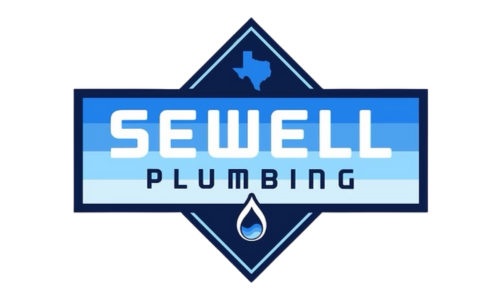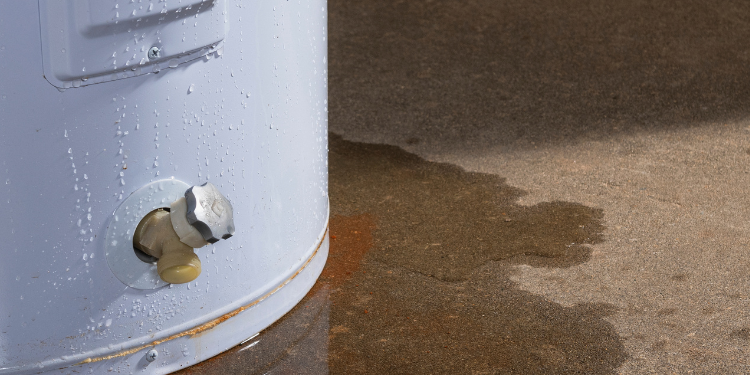Upgrading or installing a new water heater is a major investment for any home, especially in local areas like McKinney, Allen, and Frisco, TX, where climate considerations and energy efficiency are vital. Making the right choice can enhance your home’s comfort, reduce energy costs, and provide consistent hot water for your daily needs. At Sewell Plumbing, we know how crucial it is to choose a system that fits your household’s unique needs. From understanding the different types of water heaters to evaluating energy efficiency, several factors can influence your decision. Let’s dive into the key aspects you should consider before installing a new water heater.
Key Takeaway: Choosing the right water heater for your home involves considering the type of system, energy efficiency, and installation requirements to ensure optimal performance and longevity.
Choosing the Right Water Heater for Your Needs
Tank vs. Tankless Water Heaters
One of the first decisions to make when installing a new water heater is whether to go with a traditional tank water heater or opt for a modern, energy-efficient tankless system. Tank water heaters store a large amount of hot water, making them suitable for homes with high water usage. However, they can lead to energy wastage when hot water sits unused in the tank. In contrast, tankless water heaters provide hot water on demand, making them more energy-efficient but typically costing more upfront.
Fuel Type and Energy Efficiency
Another factor to consider is the type of fuel your water heater will use. Gas and electric are the most common options, but solar-powered water heaters are also becoming popular in areas like McKinney, TX, where sunlight is abundant. Gas heaters often have lower operating costs, while electric models can be easier to install. However, the system’s overall energy efficiency can save you money in the long run, and systems with Energy Star certification can help reduce your carbon footprint.
Installation Location
The space you have available for the water heater installation is also an important consideration. Tank water heaters require significant space, often in the garage or basement. If space is limited, a tankless system may be the better option. Keep in mind that installation costs can vary depending on the unit and its complexity. Consult a professional like Sewell Plumbing to assess the best option for your home.
Determining Capacity Based on Household Size
Hot Water Demand
To ensure your water heater can keep up with your household’s needs, consider your home’s daily hot water usage. A family of four will need a larger capacity water heater than a couple living alone. Tank water heaters are rated by their storage capacity in gallons, while tankless models are rated by the number of gallons per minute they can heat.
Peak Usage Times
It’s also important to consider when your household uses the most hot water. If everyone showers in the morning or you frequently run the dishwasher and washing machine at the same time, a tankless system may struggle to keep up with demand. In this case, a larger tank water heater or a combination of systems could be more suitable.
Energy Efficiency in Larger Homes
In larger homes, especially those with multiple bathrooms, ensuring that the water heater can handle peak demand is crucial. While tank water heaters with higher capacities are available, the energy efficiency benefits of a tankless system can often outweigh the costs for larger households.
Energy Efficiency and Cost Savings
Energy Star Ratings
Energy efficiency is a critical factor when choosing a new water heater. Units with high energy ratings, such as those certified by Energy Star, can save homeowners in McKinney and Allen hundreds of dollars in energy costs over the system’s lifespan. These systems may have higher upfront costs but tend to offer significant savings over time.
Long-Term Maintenance
Investing in a more energy-efficient water heater also means reduced long-term maintenance costs. Modern systems, such as tankless water heaters, have fewer parts that can break down, and with regular professional inspections from companies like Sewell Plumbing, you can ensure your water heater runs efficiently for years.
Reducing Your Carbon Footprint
Opting for a more energy-efficient water heater doesn’t just help your wallet—it also helps the environment. By reducing energy consumption, you’re minimizing your household’s carbon footprint, a growing priority for many residents in Frisco and beyond.
Water Heater Lifespan and Maintenance Considerations
Regular Maintenance for Longevity
Water heaters require regular maintenance to ensure they last as long as possible. This includes tasks like flushing the tank to remove sediment, checking for leaks, and ensuring the drain is clear. Regular maintenance from professional plumbers like those at Sewell Plumbing can extend the lifespan of your unit.
Repair vs. Replacement
If your current water heater is nearing the end of its lifespan (typically 10-15 years for tank systems and 20+ years for tankless systems), you might be weighing the cost of repairs against the cost of a new unit. While repairs may seem like a more affordable option in the short term, they can quickly add up. If your water heater is showing signs of age, a replacement might be the more cost-effective option.
Professional Installation
Whether you’re replacing an old unit or installing a new one, professional installation is crucial. Proper installation ensures that your water heater operates efficiently and safely. At Sewell Plumbing, we provide expert installation services in McKinney, Allen, and Frisco to ensure your water heater is installed correctly and meets all local plumbing codes.
Answering Common Questions
What size water heater do I need for my home?
The size of the water heater depends on your household size and daily water usage. A professional plumber can assess your needs and recommend the right size.
Is a tankless water heater worth the investment?
Tankless water heaters offer significant energy savings over time, making them a good investment, especially for larger homes with high water usage.
How long does a water heater installation take?
Installation typically takes a few hours, but the exact time depends on the type of water heater and the complexity of the installation.
Considering Energy Efficiency Ratings
Before installing a new water heater, it’s important to consider its energy efficiency rating. Units with higher ratings consume less energy, leading to long-term savings on utility bills. Energy-efficient models are especially beneficial for homeowners in McKinney and Frisco, where energy costs can fluctuate seasonally.
Water Quality and Its Impact on Water Heaters
The quality of the water in your home can also affect your water heater’s performance. Hard water can lead to the buildup of minerals inside the tank, reducing efficiency and potentially shortening the unit’s lifespan. Installing a water filter or softener can help alleviate this issue, prolonging the life of your water heater.
Reach Out for Professional Help
Choosing and installing the right water heater can be a complex decision. If you’re in McKinney, Allen, or Frisco, it’s essential to work with experienced professionals like Sewell Plumbing to guide you through the process. Our team is ready to help you select and install the perfect water heater to meet your needs, ensuring years of reliable performance and comfort in your home.







